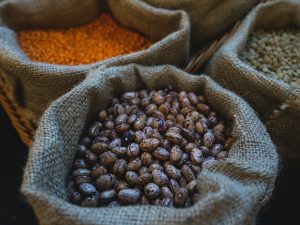The Psychology of Food Cravings: Understanding Your Body’s Signals
Welcome to the world of food cravings – a complex and often misunderstood aspect of human psychology. We’ve all experienced that intense desire for certain foods, whether it’s for something sweet, salty, or savory. It’s something that almost everyone can relate to. But have you ever wondered why food cravings occur and what they really mean? In this article, we’ll dive into the psychology of food cravings, and help you gain a better understanding of your body’s signals.
The Science Behind Food Cravings
Food cravings can be defined as a strong urge to consume a specific type of food. Usually, these cravings are for foods that are high in sugar, salt, and/or fat. These three elements, commonly referred to as the “holy trinity” of food, cause a release of dopamine – a neurotransmitter associated with pleasure – in our brains. This release of dopamine leads to a feeling of satisfaction and enjoyment, making us more likely to crave these foods in the future.
But why do we crave certain foods and not others? The answer lies in our brain’s reward system. When we eat these foods, our brains associate them with pleasure, and therefore, we are more inclined to seek them out when we are feeling down, stressed, or simply in need of a pick-me-up. In short, food cravings are reinforced by the brain’s reward system, which explains why they can be so hard to resist.
Understanding Your Body’s Signals
The Role of Emotions
It’s no secret that our emotions play a significant role in our food cravings. Many of us turn to comfort foods, such as ice cream or chocolate, when we are feeling sad or stressed. This is because these foods can provide us with a temporary sense of relief and pleasure. However, it’s important to note that emotions are not the only driving force behind food cravings.
The Impact of Habits and Environment
Our habits and environment can also influence our food cravings. For example, if you’ve become accustomed to having a sugary snack every day at 3 pm, your body will start to expect it, and you may find yourself craving it at that specific time. Similarly, if you’re surrounded by advertising and easily accessible fast food, it can be challenging to resist the urge to indulge in these foods.
Furthermore, social expectations and cultural norms can also play a role in our food cravings. For instance, we may crave certain foods because they are associated with an event or holiday, or because it’s a cultural tradition. These factors can have a significant impact on our food choices and cravings.
The Importance of Nutrition
While there are many factors at play when it comes to food cravings, our body’s nutritional needs also play a vital role. Cravings can often be your body’s way of telling you that it needs specific nutrients. For example, craving salty foods can indicate a lack of sodium in the body, while craving chocolate can be a sign of low magnesium levels. Therefore, it’s essential to pay attention to your cravings and make sure you are meeting your body’s nutritional needs through a well-balanced diet.
Managing Food Cravings
Now that we understand the psychology behind food cravings, let’s discuss ways to manage them. The first step is to recognize and acknowledge your cravings. It’s okay to have them; in fact, they are a normal part of being human. However, it’s crucial to find healthy ways to satisfy them.
One way to manage food cravings is by practicing mindful eating. This means paying attention to your body’s hunger and fullness cues and choosing nourishing foods that will satisfy you in the long run. It also involves being present and engaged while eating, avoiding distractions such as TV or your phone.
It’s also essential to have a varied and balanced diet. When you deprive yourself of certain foods, your body will eventually crave them even more. Instead, allow yourself to enjoy all types of food in moderation. This balance will help you satisfy your cravings while providing your body with the necessary nutrients.
Seeking Support
If you find that you have an unhealthy relationship with food or struggle with managing your cravings, it’s vital to seek support from a professional. A registered dietitian or therapist can help you develop healthy coping mechanisms and work through any underlying emotional issues that may contribute to your food cravings.
Conclusion
Food cravings can be a tricky and complex subject, but by understanding the psychology behind them, we can learn to manage them better. Remember, the occasional indulgence is perfectly normal, but it’s important to listen to your body’s signals and find healthy ways to satisfy your cravings. With the right mindset and support, you can learn to have a healthy relationship with food and understand the messages your body is sending you.











